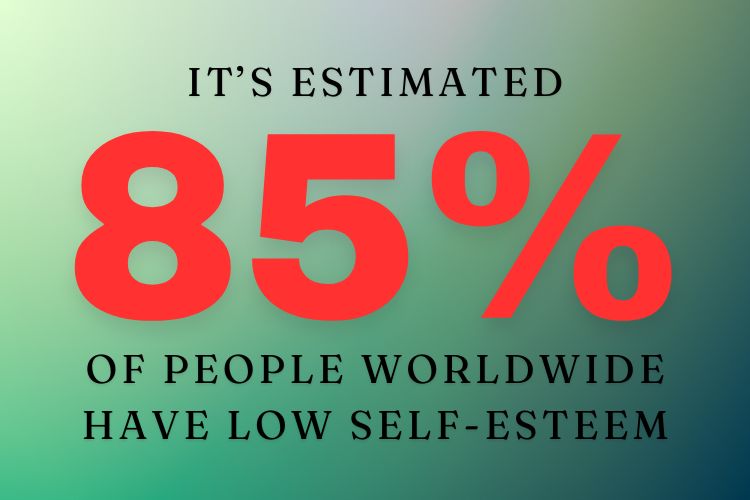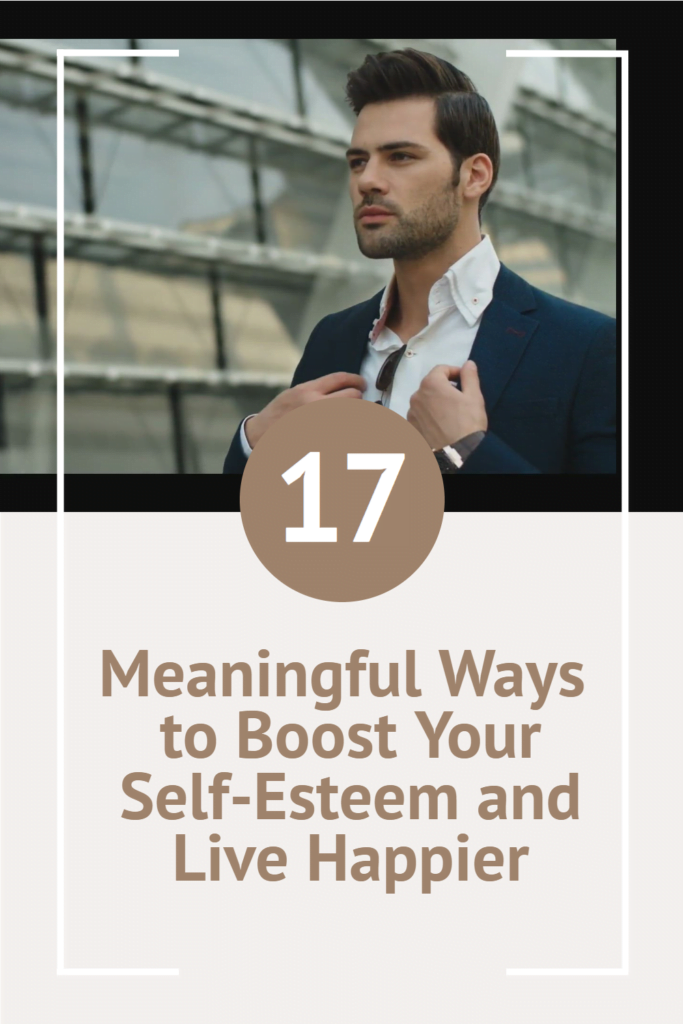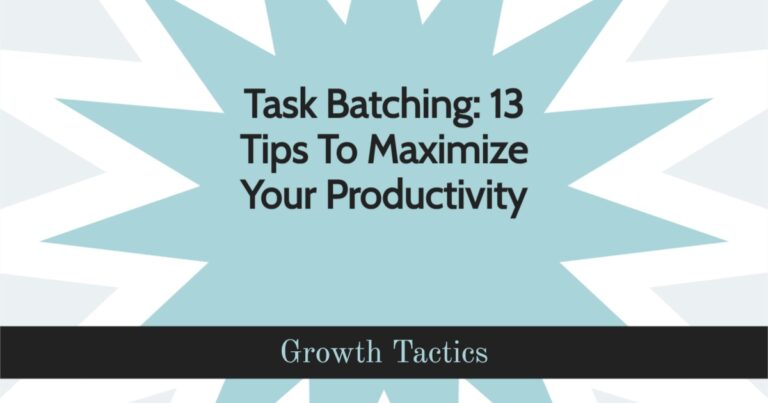If you are looking for a way to boost your self-esteem, it’s important to understand what self-esteem is and why it matters. Self-esteem is the opinion that we have of ourselves, our sense of self-worth, or personal value. It can be influenced by our thoughts and feelings about ourselves but also by how others react to us and treat us in our everyday lives. There are some things we can do on our own as well as with the help of others that will help improve our self-esteem levels!

Jump To Section
Why Self-Esteem is Important
Your self-esteem plays a role in every part of your life. It affects how you feel about yourself, and it affects the way that you interact with others. Self-esteem is particularly important because it can help to determine what goals you set for yourself and whether or not those goals are achievable. And as we all know, setting unrealistic goals will only lead to disappointment when those goals aren’t met.
Self-esteem can also affect one’s ability to succeed in life and relationships with others. It makes sense that if someone doesn’t believe they are good enough for something, then they won’t try as hard or put forth any effort at all when pursuing it. This goes back to my earlier point: without confidence in yourself (and therefore without believing in your own abilities), there’s no chance of achieving anything worthwhile because there’s no drive behind what might otherwise be considered a daunting task or goal!
Now let’s discuss some ways to boost your self-esteem.

Find Your Purpose and Mission to Give You Meaning
In order to have a positive impact on the world, you need to know what that positive impact is. Your mission and purpose are similar but not the same thing: they both describe how you want to make an impact in this world, but they differ in their scope and scale. In short, your mission should be much smaller than your purpose—think something like “I will give back as much time as I can spare volunteering at my local homeless shelter” versus “I will help end homelessness worldwide by 2034”! Your purpose is what you want to do with your life. Your mission is one of the steps you may take to get there.
Write your purpose and mission down. Studies show that writing something down adds more legitimacy to it. Once you’ve written down this statement of intent for yourself, revisit it regularly so that its contents remain relevant and meaningful for you over time. Then share it with other people, your friends, family members, and mentors, to get feedback on whether these goals reflect who you really are! Sharing it with friends and family has the added benefit of providing extra motivation because you don’t want to let them down.
See Related: 7 Easy Steps To Create An Inspirational Vision Statement
Stand up For Yourself to Boost Your Self-Esteem
You have a right to your opinion, and other people should respect it. You also have a right to say no if something makes you uncomfortable, and others should respect that. If you let others get away with disrespecting you, it will take a toll on your self-esteem.
When someone behaves in ways that make you feel disrespected or abused, it’s important for them to know that you are not ok with their behavior. They might not be aware of how they’re making you feel, but the more often we let ourselves speak up about these things, the more likely it is that other people will begin treating us with kindness and respect.
See Related: How To Handle Disrespect In The Workplace! 7 Expert Tips
Say Positive Things About Yourself to Others
One of the best ways to boost your self-esteem is by saying positive things about yourself to others. Start with yourself and then extend it to others. When you say positive things about yourself, your body and mind will start believing it. The more you talk positively about yourself, the more positive experiences you’ll have in life.
Let’s take an example of something that you can start with: “I do my job well.” This is a simple statement but it has so much power behind it because when we focus on what we can do instead of focusing on what we cannot do, then suddenly life becomes brighter and easier for us!

Be Honest About Your Accomplishments
In order to boost your self-esteem, you should be honest with yourself about your accomplishments. You should not be afraid to ask for help, a pay raise, or a promotion at work or at school. People need to know that you are capable and confident in what you do.
You can also improve your self-esteem by being honest with others about their shortcomings. For example, when someone asks for advice on how they can improve their skills as a writer or artist, be honest about what needs improvement and offer constructive criticism instead of just saying something nice like “good job.”
See Related: The 4 Areas of Personal Development for Work & Home
Offer Compliments to Others to Enhance Your Mood
It’s a simple idea, but one that can have a huge impact on your self-esteem. Give compliments to others. The more you do this, the more natural it will feel and the better you will feel about yourself.
You may be thinking that this sounds too simple to make a difference in your life, but research has found that giving compliments boosts happiness levels and increases self-esteem. It also improves relationships with others by making them feel valued and loved! And if someone else feels happy because of something nice you said to them, they’re likely to express their gratitude by giving you a compliment right back.
Dress Well and Take Care of Your Appearance
You can’t be a great leader or have high self-esteem if you don’t feel good about yourself. Dressing well can help boost your self-esteem because it makes you look more attractive. Which makes people think of you as more confident. Which leads to better treatment from others.
It’s important to dress for the occasion and for your age and body type. If you are an older person who works in an office environment and wants to be taken seriously by your co-workers, then dressing like the middle-aged man that all of the other co-workers see will not help your cause! Wearing nice clothing doesn’t mean wearing expensive items either – just looking good!
See Related: 11 Tips for Creating an Excellent Professional Image at Work
Keep a Gratitude Journal and List the Things You Are Grateful for Every Day
One of the best ways to boost your self-esteem is by practicing gratitude. A gratitude journal allows you to list at least three things that went well or made you happy each day, and writing down these thoughts can have a positive impact on both your mental health and physical health.
The benefits of gratitude don’t stop there. It can also help improve relationships by making people feel more appreciated, which can lead to better communication with loved ones. Finally, practicing gratitude has been shown to improve career satisfaction as well. Studies show that employees who maintain a grateful attitude are less likely to leave their jobs than those who do not.
See Related: 5 Reasons Keeping a Gratitude Journal Will Change Your Life
Avoid People Who Put You Down
Avoiding negative people is important for your self-esteem. If you have friends who are always putting down others, or even themselves, it could affect the way you see yourself. If a friend of yours is constantly criticizing other people, ask them to stop. Don’t let them drag you down with their negativity!
If they can’t change their ways, don’t let them stop you from being yourself! It’s okay to choose who has access to your heart. If someone is making fun of the way you look or dress it’s because they don’t like how they look themselves. Maybe this isn’t someone that should be a part of your life right now.
People will always try and bring us down but if we believe in ourselves and our dreams then we can achieve anything!
Ignore Your Inner Critic to Boost Your Self-Esteem
The first step in eliminating negative self-talk is to understand what it is. Negative self-talk is any statement you make to yourself that reflects unfavorably on your character or abilities. These statements can take many forms, from simple worries about the future (“What if I fail at this?”) to harsh criticisms of past behaviors and habits (“I’m a loser because I didn’t pass my college English class.”). People who struggle with depression often fall into the habit of making negative statements about themselves, even when they’re not feeling sad or downhearted (which can be quite frequently).
Negative self-talk often takes place outside of our conscious awareness. We don’t realize we’re saying these things until someone else points them out. But even if you do recognize when your inner critic has been speaking up, changing this behavior can be difficult but you have the ability to change it.
See Related: 25 Crucial Keys To Success In Life You Can Start Now
Allow Yourself To Be Imperfect Because We All Are
You might be thinking “I am not perfect.” But, there is a difference between being imperfect and allowing yourself to be imperfect. Our society has been programmed to believe that we must be perfect. We are taught that if we make mistakes, then we are less than our peers who don’t make mistakes. However, this is an unhealthy way of thinking because it keeps us from being able to learn from our mistakes and grow as individuals.
It’s okay to make a mistake! Everyone makes them, including me and everyone else around you! You may have had a bad day at work or school and gotten upset about something. It’s okay though because everyone does it. No one has control over their emotions at all times. Even if someone has it together on the outside, it doesn’t mean they are always happy on the inside.
Using Professional Help to Boost Your Self-Esteem
Sometimes, self-esteem issues may be deeply rooted or challenging to address independently. Recognizing when to seek professional help is a vital step toward improving your self-esteem. If persistent low self-esteem is affecting your well-being, relationships, or daily functioning, consider reaching out to mental health professionals for guidance and support.
Benefits of Therapy and Counseling
Therapy and counseling offer a safe and supportive environment to explore the underlying causes of low self-esteem and develop strategies for improvement. A trained therapist can help you identify negative thought patterns, address past traumas, and gain insight into your self-image. Through personalized interventions and therapeutic techniques, therapy can empower you to build self-awareness, self-compassion, and self-confidence.
Cognitive-Behavioral Therapy (CBT)
Cognitive-behavioral therapy (CBT) is a commonly used therapeutic approach for addressing self-esteem issues. In CBT, you work closely with a therapist to identify and challenge negative beliefs and behaviors that contribute to low self-esteem. By reframing thoughts, setting realistic goals, and practicing new coping strategies, CBT can help you cultivate a more positive self-perception and improve self-esteem.
Group Therapy and Support Groups
Participating in group therapy or support groups focused on self-esteem can provide a sense of community and understanding. Connecting with others who share similar struggles can reduce feelings of isolation and offer valuable support and encouragement. Group therapy can also provide opportunities for sharing experiences, receiving feedback, and learning from the journeys of others in a safe and non-judgmental setting.
Seeking Guidance from Life Coaches or Mentors
Life coaches and mentors can offer guidance, motivation, and practical tools to help you enhance your self-esteem. They can support you in setting and achieving personal goals, building confidence, and navigating challenging situations. Through coaching sessions, you can gain valuable insights, accountability, and encouragement to make positive changes and progress towards a healthier self-esteem.
Integrating Professional Support with Self-Care Practices
Professional help complements self-care practices and personal development efforts in boosting self-esteem. By integrating therapy, counseling, or coaching with self-reflection, self-compassion, and self-care activities, you can create a holistic approach to improving your self-esteem. Remember that seeking professional support is a proactive step towards prioritizing your mental and emotional well-being.
Choosing to seek professional help is a courageous and empowering decision that can significantly impact your journey towards enhancing your self-esteem. By collaborating with experienced professionals and investing in your personal growth, you can cultivate a more positive self-image and lead a fulfilling life.
Exercises to Boost Your Self-Esteem
1. Daily Affirmations
Repeating positive affirmations can help rewire negative thought patterns and enhance self-esteem. Start each day by looking in the mirror and saying empowering statements to yourself like “I am worthy,” “I am confident,” or “I deserve happiness.” Write down affirmations and place them where you can see them throughout the day, reminding yourself of your worth and abilities.
2. Journaling and Self-Reflection
Take time each day to write in a journal and reflect on your thoughts, emotions, and experiences. Use this space to explore your strengths, challenges, and personal growth. Celebrate small victories, identify areas for improvement, and practice self-compassion. This exercise can help increase self-awareness, improve self-acceptance, and boost self-esteem.
3. Gratitude Practice
Cultivating a gratitude practice can shift your focus to the positive aspects of your life and increase your self-esteem. Make a habit of writing down three things you are grateful for each day. It can range from simple pleasures to significant achievements. Engaging in this exercise regularly can train your mind to notice and appreciate the good in your life, fostering a sense of self-worth and contentment.
4. Visualization and Imagery
Use the power of visualization to enhance self-esteem. Close your eyes and imagine yourself succeeding, overcoming challenges, and feeling confident in various situations. Visualize yourself achieving your goals and basking in the feelings of accomplishment. This exercise can build a positive self-image and boost self-confidence.
5. Act of Self-Kindness
Engage in acts of self-kindness regularly. Treat yourself with the same compassion and care that you would extend towards a loved one. It can be as simple as taking a relaxing bath, indulging in a hobby or self-care activity, or treating yourself to something you enjoy. Practicing self-compassion and self-care reinforces self-esteem and fosters a positive relationship with yourself.
6. Challenging Negative Beliefs
Identify and challenge negative beliefs about yourself that contribute to low self-esteem. Write down these negative beliefs and next to them, provide evidence or counterarguments that contradict these beliefs. For example, if you believe you are not capable, list past accomplishments that prove otherwise. This exercise can help reframe negative self-perceptions and boost self-esteem.
Remember, consistency is key when it comes to practicing these exercises. Incorporate them into your routine and be patient with yourself. With time and persistence, these exercises can effectively boost your self-esteem and foster a more positive self-image.
Conclusion
Self-esteem is an important part of life, and many people struggle with low self-esteem. However, most of us have been able to find ways to boost our self-esteem and feel better about ourselves. If you are interested in boosting your self-esteem, there are many different techniques that work well for different people. Some techniques include finding your purpose and mission in life, dressing well and taking care of your appearance, and complimenting others on their accomplishments while ignoring criticism from others or your inner critic. Others might involve keeping a gratitude journal or avoiding people who put you down. All these methods can help improve your confidence so that tomorrow feels brighter than today! Find the best ways for you to improve yourself and stick with them.
Did you find this article on how to boost your self-esteem useful? Please share below.








